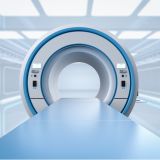In this article:
What is a Nuclear Medicine Technology Degree?
A nuclear medicine technology degree trains students to use radioactive materials to help diagnose and treat medical conditions. This field focuses on imaging techniques that allow doctors to see how organs and tissues are functioning inside the body. Students learn how to prepare and administer these radioactive materials to patients and operate specialized equipment like PET and SPECT scanners to capture detailed images.
The program typically combines classroom learning and hands-on training. Students study subjects such as anatomy, physiology, chemistry, and radiation safety. They also practice working with patients, preparing them for procedures, and following strict safety protocols to ensure that both patients and healthcare workers are protected from radiation exposure.
Program Options
Nuclear medicine technology degree programs offer a few different educational paths, depending on your career goals and level of study. Here are some common options:
- Associate Degree in Nuclear Medicine Technology: This is typically a two-year program that covers the basics of nuclear medicine, including anatomy, patient care, and radiation safety. It provides hands-on clinical training and prepares graduates for entry-level positions as nuclear medicine technologists.
- Bachelor’s Degree in Nuclear Medicine Technology: A four-year program that offers a more in-depth study of nuclear medicine. It includes advanced courses in physics, chemistry, and complex imaging techniques. Students in this program usually gain more clinical experience and may have more opportunities for career advancement or specialization.
- Certificate Programs: These are often shorter programs designed for healthcare professionals, such as radiologic technologists or nurses, who want to specialize in nuclear medicine. Certificate programs usually focus on the core skills needed for nuclear medicine technology and can be completed in about a year.
Skills You’ll Learn
A nuclear medicine technology degree helps students develop a range of technical and patient care skills. Here are some key skills learned during the program:
- Radioactive Material Handling: Students learn how to safely prepare, handle, and administer radioactive substances to patients for imaging or treatment. They also study radiation safety protocols to protect themselves and others from exposure.
- Medical Imaging and Equipment Operation: The program teaches how to use advanced imaging equipment like PET (Positron Emission Tomography) and SPECT (Single Photon Emission Computed Tomography) scanners. Students practice capturing clear images that doctors can use to diagnose conditions.
- Patient Care and Communication: Students are trained to work directly with patients, explaining procedures, ensuring their comfort, and monitoring their condition during and after scans. This includes assessing patients’ health history and providing clear instructions before the procedure.
- Data Analysis and Interpretation: Students learn how to analyze the images they produce to identify abnormalities and assist doctors in making accurate diagnoses. Understanding how to interpret the results and communicate findings is a key part of the role.
What Can You Do with a Nuclear Medicine Technology Degree?
A nuclear medicine technology degree opens up several career opportunities, primarily within the healthcare field. Here are some common career paths for graduates:
- Nuclear Medicine Technologist: This is the most common role for degree holders. Nuclear medicine technologists work in hospitals, clinics, or diagnostic labs, using radioactive materials and imaging equipment to help doctors diagnose and treat various medical conditions, like cancer, heart disease, and thyroid disorders.
- PET/CT Technologist: A specialized role where technologists focus on Positron Emission Tomography (PET) and Computed Tomography (CT) scans. They use these imaging techniques to provide detailed pictures of the body, which are especially useful in detecting cancers and monitoring treatment effectiveness.
- Radiation Safety Officer: In this role, professionals are responsible for overseeing the safe use of radiation in healthcare settings. They ensure that staff, patients, and equipment are protected from unnecessary radiation exposure by enforcing safety protocols and training others on best practices.
- Research or Pharmaceutical Industry Jobs: Graduates may also find work in research institutions or pharmaceutical companies, where they contribute to the development of new imaging technologies or radiopharmaceuticals used in nuclear medicine.

